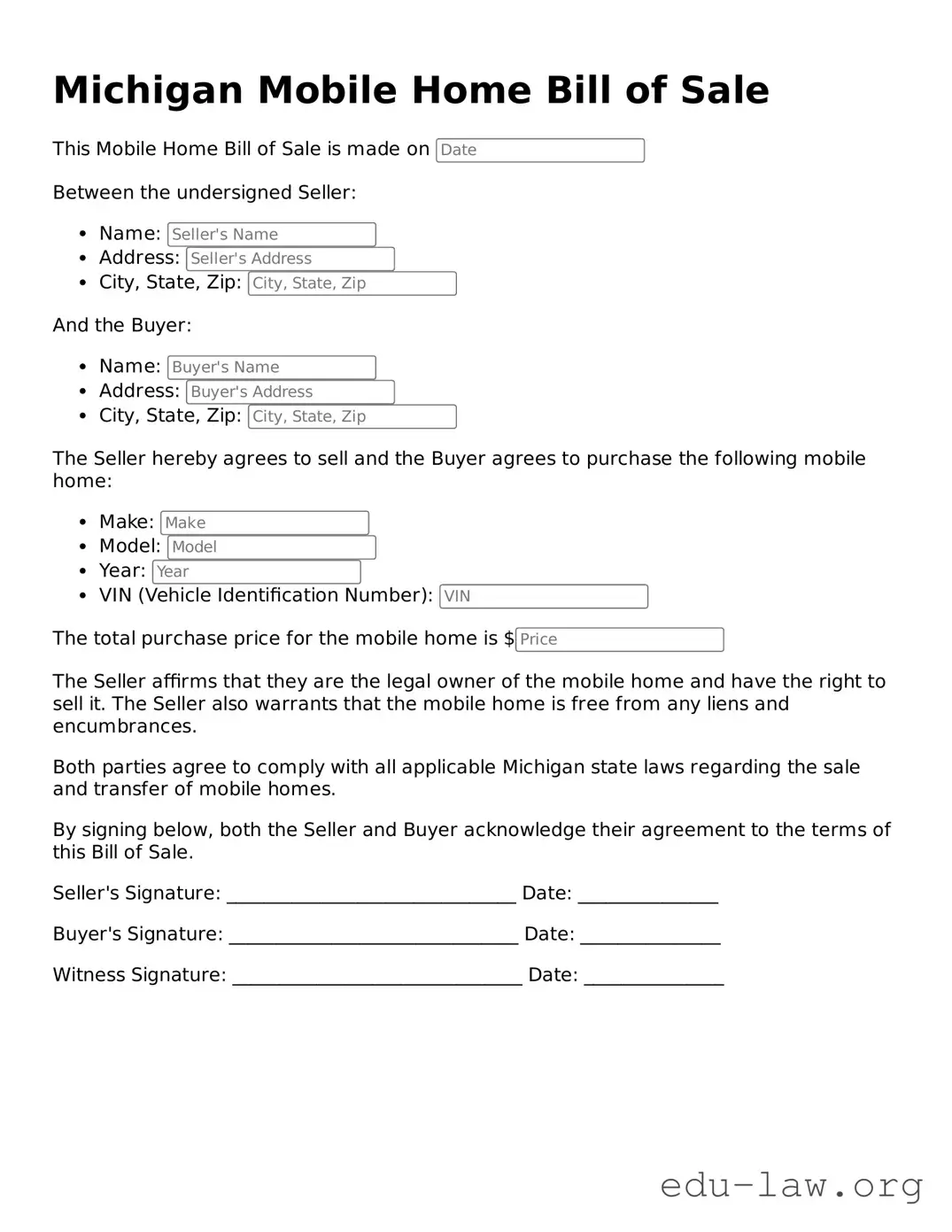What is the Michigan Mobile Home Bill of Sale form used for?
The Michigan Mobile Home Bill of Sale form serves as a legal document that records the sale of a mobile home between a seller and a buyer. This form provides essential details about the transaction, including the names of both parties, the mobile home’s make, model, year, and identification number. It officially transfers ownership from the seller to the buyer and helps protect the rights of both parties.
Do I need to have the Bill of Sale notarized?
In Michigan, notarization of the Mobile Home Bill of Sale is not a strict requirement. However, having it notarized adds an extra layer of authenticity and can make the document more credible, especially in future disputes or dealings. It's often a good practice to have important documents notarized, so consider this option for the bill of sale.
How do I fill out the Michigan Mobile Home Bill of Sale form?
Filling out the form requires basic information. Start by entering the seller's and buyer's names, addresses, and contact information. Next, provide specific details about the mobile home: its make, model, year, and Vehicle Identification Number (VIN). Then, include the sale price and the date of the transaction. Both parties should sign the document to indicate their agreement to the terms. This is quite straightforward and can be done in a few minutes.
What happens after I complete the Bill of Sale?
Once the Bill of Sale is completed and signed, the seller should keep one copy for their records, while the buyer retains another. The buyer can then take the document to the local government office to update the title and registration of the mobile home. This step is crucial to ensure legal ownership is properly reflected in public records.
Is a Bill of Sale required to sell a mobile home in Michigan?
While it may not be legally mandated to have a Bill of Sale to sell a mobile home, it is highly recommended. A Bill of Sale acts as proof of the transaction and can be instrumental in resolving any disputes. It protects both the seller and buyer by recording the terms of the sale, making it a wise tool in any mobile home transaction.
What if I lose my Bill of Sale?
In the unfortunate event that you lose your Bill of Sale, you may be able to obtain a copy from the other party if they have kept theirs. If neither party has a copy, you might need to recreate the document with the essential details as accurately as possible. It’s also advisable to keep digital copies of important documents in the future to prevent any loss.
Can I modify the Bill of Sale form?
You can modify the Bill of Sale form as long as all parties agree to the changes. It’s important to ensure that any alterations do not contradict the original intent of the transaction. Always make sure that both the seller and buyer sign any modified documents to confirm their consent. This helps maintain clarity and avoid misunderstandings.
